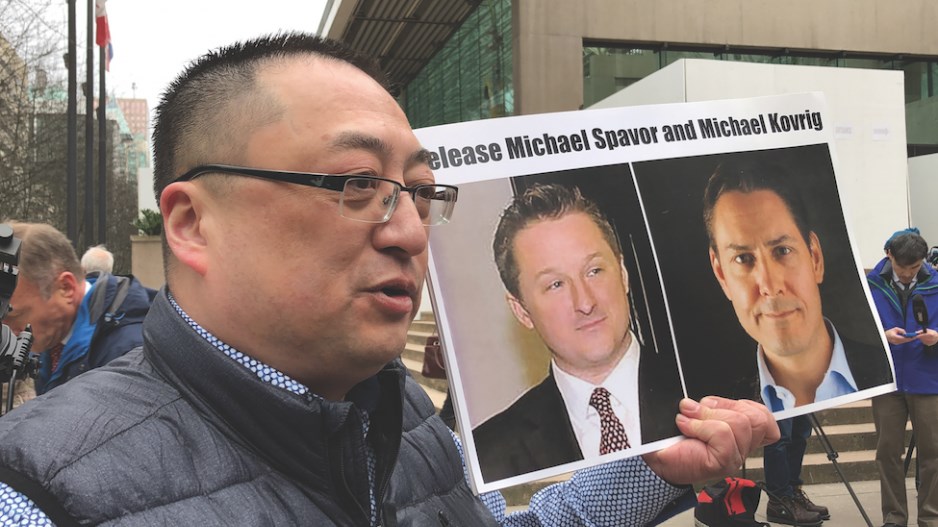The more time it takes to resolve the case of Huawei Technologies Co. Ltd. CFO Meng Wanzhou – and all indications from the executive’s first extradition hearing appearance last week show it could take years – the more likely it is that China will impose further economic pressure on Canada.
That is the assessment of some Asia-Pacific observers, who noted that it likely was not a coincidence that Chinese authorities revoked the canola import permit of Richardson International, one of Canada’s largest grain processors, just days before Meng’s extradition hearing started on March 6.
“I think there’s going to be a steady drip of these kind of things,” said Hugh Stephens, distinguished fellow with the Asia Pacific Foundation of Canada and executive fellow at the University of Calgary’s School of Public Policy. “Obviously, we’ll try to keep the dialogue open, but it’s really the Chinese who are calling the shots on this. They are initiating the retaliatory actions, and I suspect this won’t be the last one that we see.”
Meng, who is the daughter of Huawei founder Ren Zhengfei, made a brief appearance in court in Vancouver last Wednesday during the much-anticipated extradition hearing. The court set May 8 as the next hearing date before adjourning, and defence and Crown lawyers will decide in the meantime the number of applications that will be brought up and the exact dates each issue will be discussed.
Meng defence lawyer Richard Peck noted in court that the case is “rare” and “complex,” alluding to the possibility that the extradition hearing could drag out for years. Peck added that there would likely be abuse-of-process applications that would take significant time to address on a topic-by-topic basis, and there are additional concerns of political interference in the case, given the comments of U.S. President Donald Trump on using the case as a possible point of negotiations.
Vancouver-based immigration lawyer and policy consultant Richard Kurland said the entire process could take “many, many years.”
Kurland said the Canadian extradition process commonly takes at least three years. “Up to five or seven years is normal for folks with deep pockets.”
That’s because, in addition to the lengthy court hearings into whether U.S. evidence fulfilled the requirements outlined in the U.S.-Canada extradition treaty, the Canadian justice minister in this case would have to personally order Meng to surrender to U.S. authorities if the courts find there is sufficient evidence to commit her for extradition.
If that happens, the accused can still seek judicial review of the surrender order issued by Ottawa. When combined with the appeal process for the court decision itself, the entire procedure can take several years to resolve.
The arrest of Meng on December 1 at Vancouver International Airport at the behest of the U.S. Department of Justice, based on accusations of money laundering, theft of technology and operating in Iran in contravention of American sanctions, has triggered a major rift in Canada-China relations.
In addition to the Richardson canola permit issue, Beijing officially charged two Canadians arrested in China on December 10 of stealing sensitive state secrets in tandem. The pair – Michael Kovrig and Michael Spavor – have been held in China without access to lawyers, although Chinese authorities say this is standard procedure in many countries when issues of national security are involved. They deny there is a double standard in their treatment compared with that of Meng in Canada.
“I think you already know that Chinese authorities took forceful actions – in accordance with the law – against Canadian citizens Kovrig and Spavor because they were involved in activities that threatened China’s national security,” said Chinese Ministry of Foreign Affairs spokesman Lu Kang in a transcript of responses to media in Beijing.
Meng’s previous court appearances in Vancouver for her bail hearing have been attended by several pro-Huawei protesters, although the most recent extradition hearing date drew more anti-China activists, many of whom gathered outside the courtroom to call on Beijing to release Kovrig and Spavor.
“If Meng is extradited to the U.S., she will get an open and transparent legal proceeding,” said protester Louis Huang. “If she’s innocent, she will go free. If she committed a crime, she will be sentenced…. On Ms. Meng’s court date, we want more people to pay more attention to these two Canadians.”
The Asia Pacific Foundation’s Stephens said Canada has few options when dealing with further economic fallout from Meng’s detainment. He noted that while China may not ban specific commodity imports outright, Beijing has shown it has other ways to inflict damage through trade barriers.
One such example is Australia, which banned Huawei from the development of the country’s 5G network last year. This year, China has slowed its import of Australian coal, delaying customs clearance and in one case suspending its issuance outright. Beijing has denied an official ban is in place.
China, at 89 million tonnes imported from Australia in 2018, is the country’s second-largest coal export market, behind only Japan. Considering that Canada’s chief exports to China can all be found from other markets like Russia and Southeast Asia, Stephens said industries like lumber, seafood and minerals are all vulnerable to similar treatment.
A spike in trade between China and the United States could also spell trouble for Canada if the two sides resolve their tariff dispute.
“Even without retaliation, once the United States and China do their deal, there’s effectively going to be a trade diversion,” Stephens said. “So while our seafood exports have surged in the last little while because of the retaliatory tariffs put on the U.S., presumably those will come off, and Chinese consumers will be encouraged to buy from the U.S. So there could be a double whammy here.” •




